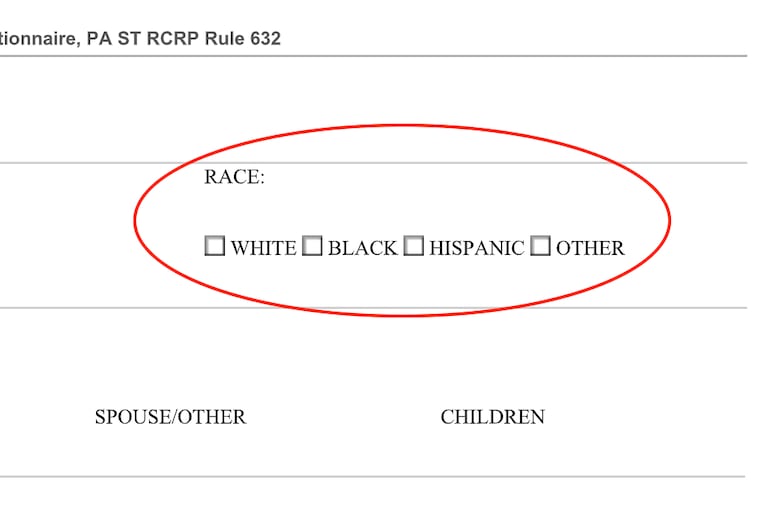Why isn’t my Asian identity listed as an option on jury duty forms? | Opinion
I am happy to do my civic duty but upholding my responsibility to the city of Philadelphia reminds me that my citizenship, as an Asian-American in Philadelphia, is othered.

This year, like many other times over the 14 years I’ve lived in Philadelphia, I showed up to jury duty. It felt important to show up during the pandemic, to participate in my civic responsibility, and to connect with my fellow Philadelphians during a time of so much disconnection and isolation. I also was very much looking forward to the discount at Reading Terminal, quiet time during the waiting periods, and, if I was lucky, being graced by our local hero, Tanya Covington, who makes jury duty exciting and fun in the waiting areas.
I showed up this year with enthusiasm but instantly, like all the years in the past, I felt a huge wave of disappointment from the jury duty paperwork, specifically with the blank spot with the word “other” where I must fill in the word “Asian” to indicate my racial identity.
I am happy to do my civic duty, but upholding my responsibility to the city of Philadelphia reminds me that my citizenship as an Asian-American in Philadelphia is othered, both literally and figuratively speaking.
This may seem like a small inconvenience or a minor administrative oversight, but for me it felt like another example of the complexity of navigating racial identity in a place that doesn’t see me when I’m standing there in plain sight. Seeing everyone else’s race and ethnicity, except mine, felt both familiar and infuriating, especially during a time where we’ve seen a significant increase in hate against Asian Americans and Pacific Islanders (AAPI), both locally and nationally.
» READ MORE: Redefining the ‘other’ and what it means to be an Asian American | Expert Opinion
Do AAPI people matter in the Philadelphia area? Some say that there are simply not enough AAPI people to count to be considered “statistically significant.” Those who argue that might say that perhaps there are not enough AAPI people eligible for jury duty in Philadelphia to be given a checkbox and a proper identification on important forms.
But that’s simply inaccurate given our current reality. Philadelphia has a growing AAPI community. Recently released U.S. Census numbers heralded a nearly 39% increase in Asian residents in Philadelphia. Nationally, AAPI people are the fastest growing ethnic population in the United States. Stacey Abrams, the well-known political strategist from Georgia, credits her success in changing the political landscape of Georgia by mobilizing, acknowledging, and engaging the AAPI community in the Peach State.
The lack of acknowledgement of AAPI identity on jury duty forms is even more difficult to understand given the rich history of the AAPI community in Philadelphia.
We have the oldest Filipino Association and one of the oldest Chinatowns in the country, a bustling Koreatown in Olney. Philadelphia is home to the Asian Arts Initiative, has a Philadelphia Asian American Film Festival, and is home to several nationally known amazing AAPI thought leaders including prominent HIV/AIDS activist Kiyoshi Kuromoiya, activist and Vietlead executive director Nancy Ngyuen, famed writer David Eng, and blockbuster director M. Night Shyamalan. AAPI people are significant staples to Philadelphia’s diverse and vibrant community.
» READ MORE: 6ABC anchor Nydia Han: Asian Americans saw this coming | Opinion
And yet, our civic duty, a requirement of citizenship in Philadelphia, erases the validity of this history with a blank space and a “do it yourself” identification. For many of us, being treated as if our citizenship is precarious is not new, but a consistent reminder of the racism and xenophobia we endure. From the consistent question of “where are you really from?” to blatant disregard in administrative forms, citizenship of AAPI individuals is often questioned, rejected, or simply forgotten.
I challenge our government officials to consider a change in the jury duty form, to give the AAPI community a space to literally exist on their forms and, hopefully, to remind Philadelphia that we have been and will continue to be here.
Dr. Noel B. Ramirez is a clinical social worker and owner of Mango Tree Counseling & Consulting, a local Philly-based AAPI mental health group practice.